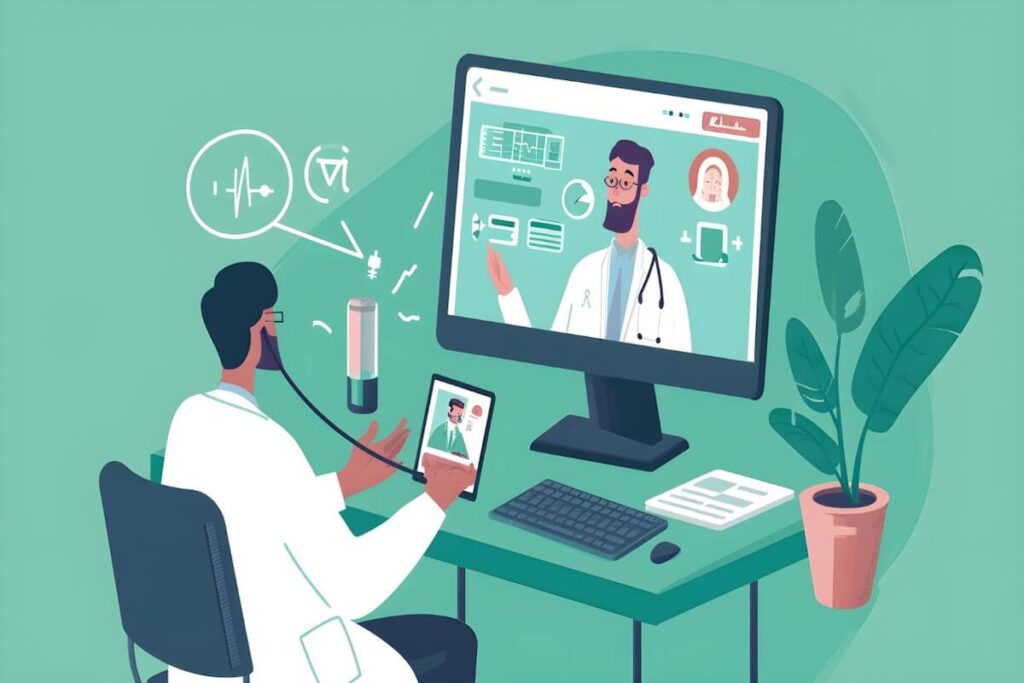In today’s digital age, mobile apps have revolutionized the way healthcare providers interact with their patients. One of the most significant advancements in healthcare technology is remote patient monitoring, which allows patients to track their health metrics from the comfort of their own homes. Mobile apps play a crucial role in facilitating remote patient monitoring by providing a user-friendly platform for patients to input and track their health data, communicate with healthcare providers, and receive timely feedback and guidance.
Benefits of Remote Patient Monitoring with Mobile Apps
- Improved Patient Outcomes: Remote patient monitoring through mobile apps enables healthcare providers to closely monitor patients’ health metrics in real-time, leading to early detection of potential health issues and timely intervention, ultimately resulting in improved patient outcomes and reduced hospital readmissions.
- Convenience and Accessibility: Mobile apps offer patients the convenience of tracking their health data from anywhere, at any time, eliminating the need for frequent visits to healthcare facilities. This accessibility allows patients to easily input their health metrics through the app and receive feedback remotely, promoting better health management.
- Enhanced Patient Engagement: By providing a platform for patients to track their progress, set health goals, and communicate with their healthcare providers, mobile apps drive increased patient engagement. This active involvement in their healthcare can lead to better adherence to treatment plans and ultimately improved overall health outcomes.
Features of Mobile Apps for Remote Patient Monitoring
- Health Data Tracking: Mobile apps enable patients to input and monitor a range of health metrics, including blood pressure, blood sugar levels, weight, and medication adherence. This data is securely transmitted to healthcare providers for review, allowing for personalized care and timely interventions.
- Real-Time Alerts and Notifications: With mobile apps, patients receive real-time alerts and notifications based on their health data inputs. For instance, if a patient’s blood sugar level is abnormal, the app can prompt them to take immediate action or contact their healthcare provider, ensuring proactive health management.
- Secure Communication: Mobile apps provide a secure platform for patients to communicate with healthcare providers, facilitating seamless interactions. Patients can inquire about their health, request prescription refills, and schedule appointments through the app, ensuring efficient and timely communication.
- Integration with Wearable Devices: Many mobile apps for remote patient monitoring are compatible with wearable devices such as fitness trackers and smartwatches, allowing for seamless tracking of health metrics. These devices sync with the app, providing real-time data updates for both patients and healthcare providers.
Case Study: XYZ Medical Center
XYZ Medical Center, a leading healthcare facility, recently implemented a mobile app for remote patient monitoring to enhance patient care and improve health outcomes. Through the app, patients can track vital signs, medication adherence, and symptoms, providing valuable insights to healthcare providers.
Patients can input their health data, receive real-time feedback from their healthcare team, and access educational resources to manage their health effectively. The app also features secure messaging, enabling seamless communication between patients and healthcare providers.
Since the implementation of the mobile app, XYZ Medical Center has witnessed an increase in patient engagement, adherence to treatment plans, and overall health outcomes. Patients feel empowered to take control of their health and appreciate the convenience of tracking their health metrics on their smartphones.
Conclusion
Mobile apps are essential in facilitating remote patient monitoring by providing a user-friendly platform for patients to track their health metrics, communicate with healthcare providers, and receive timely feedback. The benefits of remote patient monitoring through mobile apps include improved patient outcomes, convenience and accessibility, enhanced patient engagement, and cost-effectiveness.
Healthcare facilities like XYZ Medical Center that adopt mobile apps for remote patient monitoring can enhance patient care, increase engagement, and ultimately improve health outcomes. As technology advances, mobile apps will continue to revolutionize healthcare delivery and empower patients to manage their health effectively.
For any further questions or additional information about how mobile apps can enhance remote patient monitoring, please feel free to contact us. We’re here to help!
FAQs:
How can mobile apps improve patient outcomes through remote patient monitoring?
Mobile apps allow healthcare providers to closely monitor patients’ health metrics in real-time, enabling early detection of potential health issues and timely intervention, leading to improved patient outcomes and reduced hospital readmissions.
What are the benefits of using mobile apps for remote patient monitoring?
Mobile apps provide convenience and accessibility for patients to track their health data from anywhere, enhanced patient engagement by encouraging active participation in managing their health, and cost-effectiveness by reducing the need for in-person visits and hospitalizations.
What features do mobile apps for remote patient monitoring offer?
Mobile apps allow patients to track various health metrics, such as blood pressure, blood sugar levels, weight, and medication adherence. They also provide real-time alerts and notifications based on the input data for timely feedback and guidance.
How do mobile apps facilitate communication between patients and healthcare providers in remote patient monitoring?
Mobile apps serve as a user-friendly platform for patients to communicate with their healthcare providers, track their progress, set health goals, and receive guidance remotely, enhancing patient engagement and adherence to treatment plans.
